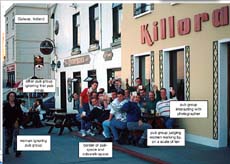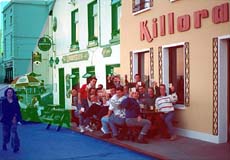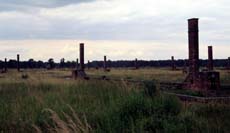Places and oppression

Young men judging women as they pass by, in Galway, Ireland

Areas with different norms

Remnants of the Auschwitz II - Birkenau death camp (Oswiecim, Poland)
Because they spread out norms and expectations, places can be sites of both oppression and liberation. When the grammar of a place assigns appropriate actions and roles for people, it can make some people invisible, or confine them to diminished roles. Place norms can also degrade possibilities even if there is no oppression of one group by another, since the quality of actions and roles available in the place may be less than is needed for human flourishing, even if no one is differentially oppressed.
There are many causes why places acquire their particular social grammar and norms. Economic system effects on available resources and incentives, political policies and decisions made far away or in the past, historical patterns of acting, cultural values, singular paradigmatic events . . . the list could go on and on. Oppressive social patterns get created and reinforced. Places are seldom the sole origin of oppression, but they lay it out. Social roles and values fill the landscape. Once there are places for everything and everyone is in his or her place, grammatically defined relationships can seem normal and inevitable.
Creating a new kind of place, or creating a rift in the continuity of social places, can mount powerful challenges to accepted definitions, because such acts alter our perceived landscape of possibilities. I am urging that we increase the structural and lived complexity of places; this is not by itself enough to undo oppression, but it can make both connections and absences more evident, and so encourage new possibilities for action.